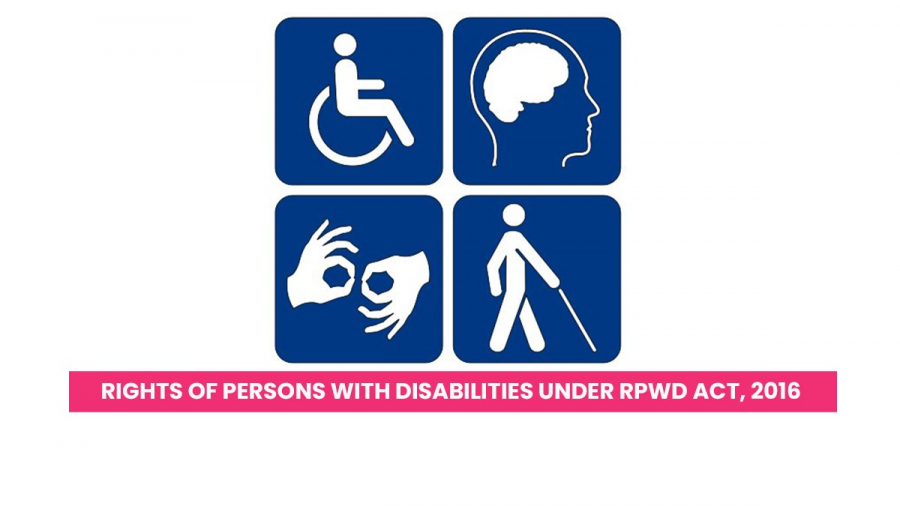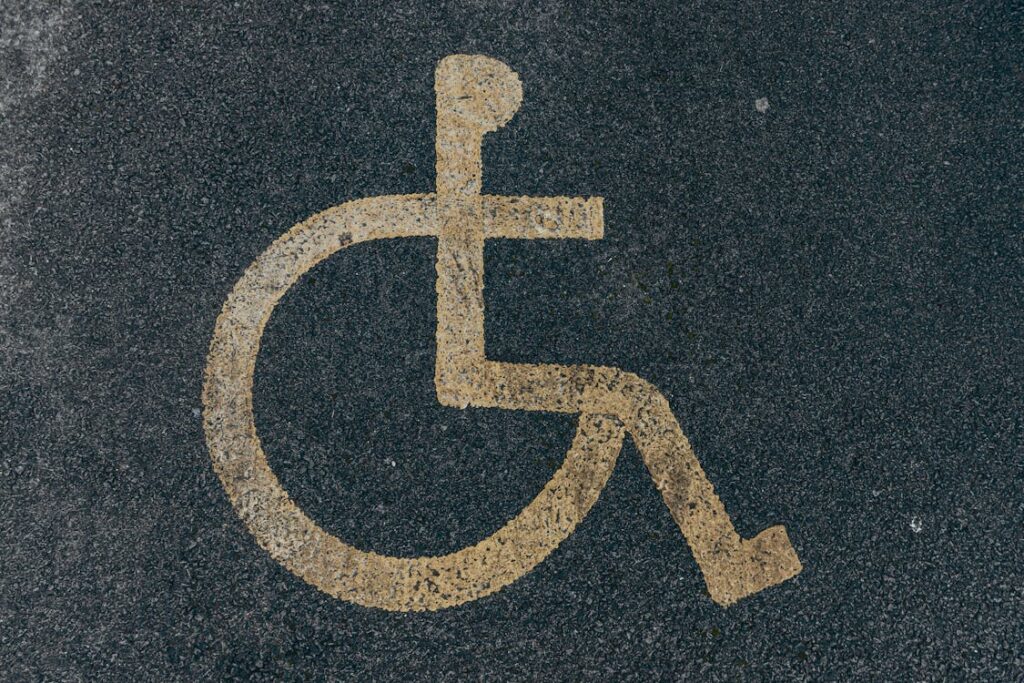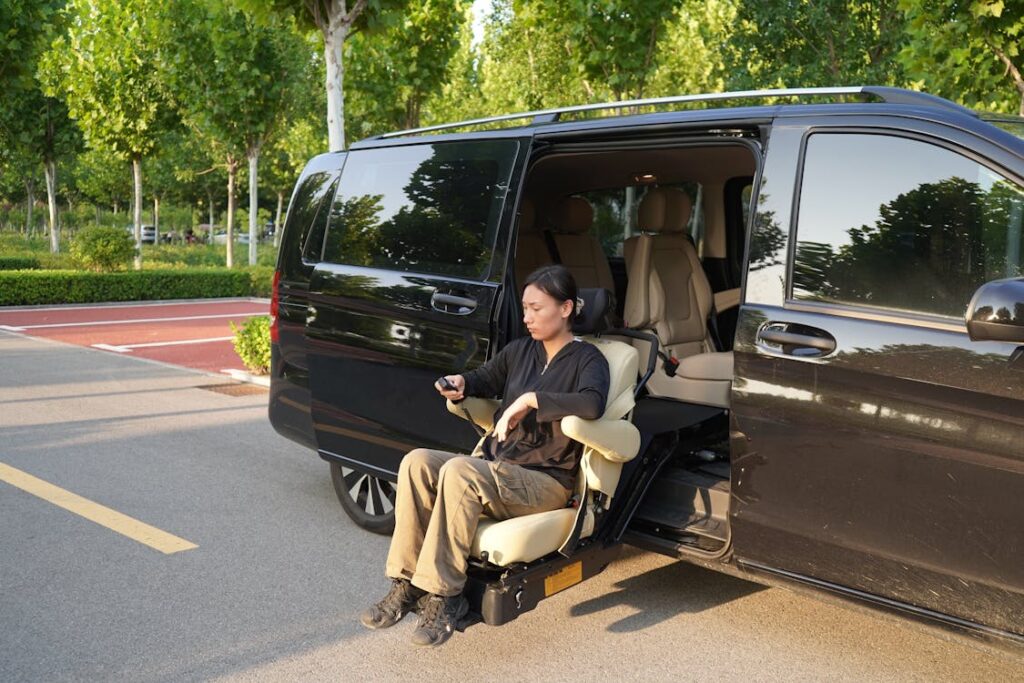Work is an important part of life. It provides financial independence, personal growth, and a sense of purpose. However, for persons with disabilities, securing and maintaining employment can often be a challenge—not because of their abilities, but due to workplace discrimination. Many disabled employees in India face bias in hiring, unequal pay, lack of workplace accommodations, and even wrongful termination.
To protect the rights of persons with disabilities and ensure fair treatment in employment, India has strong legal safeguards in place. The Rights of Persons with Disabilities (RPWD) Act, 2016, along with labor laws and workplace policies, aims to create a more inclusive and equal work environment. These laws make it illegal for employers to discriminate against disabled employees and require organizations to make reasonable adjustments so that individuals with disabilities can work effectively.
Understanding these legal protections is crucial for both employees and employers. Employees should know their rights so they can take action if they experience unfair treatment. Employers, on the other hand, must comply with the law and create a work environment that promotes equality and inclusion.

Workplace Rights Under the Rights of Persons with Disabilities (RPWD) Act, 2016
The RPWD Act, 2016, is the most important law protecting the rights of disabled employees in India. It covers all aspects of employment, from hiring and job security to workplace accommodations and promotions.
The law applies to both government and private sector jobs, ensuring that persons with disabilities have equal opportunities in the workforce.
Equal Opportunity in Hiring and Employment
The RPWD Act states that no employer can deny a job to a person simply because they have a disability. Employers must assess candidates based on their skills, qualifications, and experience, rather than making assumptions about their abilities based on their disability.
If an individual meets the job requirements, their disability should not be a factor in hiring decisions.
Government jobs have additional protections. The law mandates that 4% of all government job vacancies must be reserved for persons with disabilities.
These reservations apply across different categories of disabilities, ensuring that opportunities are available to a broad range of individuals.
Reasonable Accommodations and Workplace Accessibility
Workplaces must provide reasonable accommodations to disabled employees. This means making necessary adjustments to ensure that persons with disabilities can perform their job duties without difficulty.
Accommodations may include accessible office spaces, assistive technology, flexible work hours, or modified job responsibilities, depending on the individual’s needs.
For employees with mobility impairments, workplaces should have ramps, elevators, and accessible washrooms. For those with hearing or visual impairments, employers may need to provide screen readers, sign language interpreters, or modified workstations.
The goal is to create an inclusive environment where employees can work comfortably and productively.
Protection Against Workplace Harassment and Bias
Discrimination is not always obvious. Sometimes, it comes in the form of unfair treatment, exclusion from promotions, or even workplace bullying.
The RPWD Act strictly prohibits harassment or mistreatment of employees with disabilities. If a disabled employee faces verbal abuse, exclusion from important work assignments, or is unfairly denied promotions, they have the right to file a complaint against their employer.
Workplace policies must include provisions to prevent and address discrimination. Every company with more than 20 employees is required to have an Equal Opportunity Policy, which must outline measures to ensure that disabled employees are treated fairly.
Employers who fail to comply with these requirements can face legal penalties.

Legal Remedies for Workplace Discrimination
Even though the Rights of Persons with Disabilities (RPWD) Act, 2016, provides strong protections, discrimination still occurs in many workplaces.
Employees with disabilities may be denied promotions, paid less than their colleagues, or even forced to resign due to inaccessible work environments. When such violations happen, the law provides ways for individuals to seek justice and hold employers accountable.
Filing a Complaint with the Employer’s Equal Opportunity Policy Committee
Every organization with more than 20 employees is legally required to have an Equal Opportunity Policy in place. This policy should include mechanisms for handling complaints related to workplace discrimination against persons with disabilities.
Employees who experience unfair treatment should first approach their employer and report the issue to the internal grievance committee.
Many companies have a dedicated HR department or internal complaints committee that deals with discrimination cases. Employers are required to investigate complaints fairly and take corrective action if discrimination is found.
In some cases, issues can be resolved internally through discussions, adjustments to workplace policies, or additional training for staff on disability inclusion.
However, if an employer ignores the complaint or fails to take appropriate action, the employee has the right to escalate the issue to higher authorities.
Approaching the State Commissioner for Persons with Disabilities
If the employer does not resolve the issue, the next step is to file a complaint with the State Commissioner for Persons with Disabilities.
Each state in India has a commissioner responsible for ensuring that disability rights laws are followed. The commissioner has the authority to investigate cases, summon employers for explanations, and direct organizations to correct discriminatory practices.
To file a complaint, the employee must submit a written application describing the nature of the discrimination, along with any supporting evidence, such as emails, salary slips, or witness statements.
The commissioner’s office will then conduct an inquiry and take action based on the findings.
Filing a Case in Labor Courts or High Courts
If the issue is still not resolved, the affected employee can take legal action by filing a case in a labor court or the High Court. This is usually done when an individual faces wrongful termination, severe discrimination, or denial of legally mandated benefits.
A lawyer specializing in labor and disability rights can help file a petition demanding justice. In many cases, the court may order the employer to reinstate the employee, provide compensation for lost wages, or impose fines for violating the law.
Although legal proceedings can take time, they are a powerful way to challenge systemic discrimination and create long-term changes in workplace policies.
Compensation and Penalties for Discrimination
Under the RPWD Act, employers who violate disability rights laws can face penalties. Companies that fail to implement Equal Opportunity Policies, provide reasonable accommodations, or comply with hiring quotas may be fined.
In serious cases of discrimination, individual managers or HR personnel responsible for unfair treatment can also be held accountable.
For employees who experience financial losses due to discrimination, courts may order compensation. This could include payment for lost wages, reimbursement for legal fees, and damages for emotional distress.
Such legal measures ensure that companies take disability rights seriously and work towards building an inclusive workplace.

The Role of Employers in Preventing Workplace Discrimination
While legal protections provide employees with the right to challenge discrimination, preventing such incidents from happening in the first place is equally important.
Employers play a crucial role in fostering an inclusive work environment where persons with disabilities are treated fairly and given equal opportunities.
A proactive approach to inclusivity not only helps organizations comply with the law but also creates a more diverse and productive workforce.
Creating Inclusive Hiring Practices
One of the most effective ways to prevent workplace discrimination is to ensure that the hiring process is fair and accessible. Employers must focus on a candidate’s skills, experience, and qualifications rather than making assumptions about their abilities based on their disability.
Job descriptions should clearly state that applications from persons with disabilities are welcome, and recruitment procedures should be designed to accommodate different needs.
For example, interview locations should be accessible, and alternative communication methods such as sign language interpreters should be provided if required.
Companies can also conduct disability awareness training for recruiters and hiring managers to ensure that they are equipped to evaluate candidates fairly.
Implementing Workplace Accessibility Measures
Workplace accessibility is a legal requirement under the RPWD Act, 2016, and employers must take necessary steps to make their offices, workstations, and common areas accessible to employees with disabilities.
This includes installing ramps, elevators, accessible restrooms, and providing assistive technology such as screen readers and voice recognition software.
Flexible work arrangements, such as remote work options and adjustable working hours, can also be provided to employees with disabilities who may need them.
Making these accommodations does not just benefit persons with disabilities—it creates a workplace where all employees can work comfortably and efficiently.
Developing an Inclusive Work Culture
Beyond physical accessibility, fostering an inclusive mindset among employees is essential. Many instances of workplace discrimination stem from ignorance rather than intentional bias.
Employers should invest in disability sensitivity training programs that educate staff on disability etiquette, inclusive communication, and how to support colleagues with disabilities.
Workplace policies should explicitly state that discrimination, harassment, or exclusion based on disability will not be tolerated. Employees should be encouraged to report any instances of unfair treatment, and complaints should be addressed promptly and fairly.
Having strong anti-discrimination policies in place helps ensure that employees with disabilities feel safe and valued in their workplace.
Promoting Career Growth and Leadership Opportunities
One of the common forms of discrimination that persons with disabilities face is being overlooked for promotions or leadership roles. Many companies assume that employees with disabilities cannot handle higher responsibilities, leading to professional stagnation.
Employers must actively support the career growth of persons with disabilities by offering mentorship programs, leadership training, and equal opportunities for promotions.
Recognizing and rewarding the contributions of employees with disabilities not only benefits individuals but also strengthens the organization by ensuring that talent is utilized to its full potential.
Creating diverse leadership teams that include persons with disabilities helps reinforce a culture of inclusivity and sets an example for the rest of the workforce.
Encouraging Employee Support Networks
Support networks and employee resource groups (ERGs) can be powerful tools in creating an inclusive work environment. These groups provide a platform for employees with disabilities to share their experiences, raise concerns, and suggest improvements.
They also help build a sense of community and belonging, making the workplace more welcoming and supportive.
Employers can encourage the formation of disability inclusion groups within their organizations and provide the necessary resources to support their activities.
Involving these groups in company policy-making and workplace improvement initiatives ensures that the needs of employees with disabilities are considered at every level.

Government Initiatives to Promote Inclusive Employment
The Indian government has introduced several policies and programs to encourage the inclusion of persons with disabilities in the workforce.
These initiatives aim to bridge the gap between legal protections and real-world employment opportunities by providing financial incentives, training programs, and support systems for both employees and employers.
Understanding these programs can help disabled individuals access better job opportunities and assist businesses in creating more inclusive workplaces.
Reservation in Government Jobs
One of the most significant employment protections for persons with disabilities in India is the 4% reservation in government jobs, mandated by the RPWD Act, 2016.
This reservation applies to various posts across different ministries, public sector units, and government departments. It ensures that persons with disabilities have equal access to stable and well-paying jobs in the public sector.
Government organizations are required to make recruitment processes accessible, ensuring that persons with disabilities can participate in written tests, interviews, and skill assessments without facing barriers.
If a candidate with a disability is denied a job opportunity despite meeting the eligibility criteria, they can challenge the decision through legal channels.
Financial Incentives for Private Employers
To encourage private companies to hire persons with disabilities, the government provides financial incentives under schemes like the Incentive Scheme for Employment of Persons with Disabilities.
Under this scheme, the government reimburses employers for the employer’s contribution to the Employees’ Provident Fund (EPF) and Employees’ State Insurance (ESI) for three years for each employee with a disability.
This reduces the financial burden on companies and motivates them to adopt inclusive hiring practices.
Some state governments also offer additional tax benefits to businesses that employ persons with disabilities. These incentives help offset the cost of workplace accommodations and promote a more diverse workforce.
Skill Development and Vocational Training Programs
The Indian government has launched multiple skill development initiatives to enhance the employability of persons with disabilities.
Programs such as Skill India, the National Action Plan for Skill Development of Persons with Disabilities (NAP-SDP), and the National Handicapped Finance and Development Corporation (NHFDC) offer specialized training in various fields.
These programs provide vocational education, technical training, and entrepreneurship support, enabling persons with disabilities to secure better jobs or start their own businesses.
Government-backed training centers are equipped with accessible infrastructure, assistive technology, and industry partnerships to ensure that trainees gain practical skills relevant to the job market.
Private companies can also collaborate with these programs to recruit trained individuals and create a more inclusive workforce.
Entrepreneurship Support and Self-Employment Schemes
For persons with disabilities who wish to start their own businesses, the government offers financial assistance through the NHFDC and other microfinance programs.
Low-interest loans, grants, and business development training are provided to help individuals establish and expand their enterprises. These initiatives empower persons with disabilities to become financially independent and contribute to the economy as entrepreneurs.
The Stand-Up India scheme also supports self-employment initiatives by offering credit to persons with disabilities who want to start small businesses. These financial aid programs ensure that lack of capital does not become a barrier to economic participation.
Awareness and Implementation Challenges
Despite the existence of these initiatives, many persons with disabilities are unaware of the benefits available to them. In some cases, employers also lack knowledge about the incentives they can receive for hiring persons with disabilities.
The government, NGOs, and corporate sectors need to work together to improve awareness and ensure that these programs are effectively implemented.
Stronger monitoring mechanisms and stricter enforcement of employment laws are necessary to ensure that businesses comply with legal requirements.
Encouraging corporate social responsibility (CSR) programs focused on disability inclusion can also help drive long-term change in workplace policies and hiring practices.

Challenges in Enforcing Workplace Protections for Disabled Employees
While India has strong legal protections and government initiatives to promote inclusive employment, many persons with disabilities still face barriers in the workplace.
The gap between policy and real-world implementation remains a significant challenge. Discrimination, lack of accessibility, and limited awareness continue to prevent disabled employees from fully benefiting from the protections guaranteed by law.
Understanding these challenges is essential in addressing them and ensuring that workplace rights are upheld.
Lack of Awareness Among Employers and Employees
One of the biggest obstacles to enforcing workplace protections is the lack of awareness about disability rights. Many employers, particularly in the private sector, are unaware of the legal obligations they have toward employees with disabilities.
As a result, they may unintentionally violate the law by failing to provide accommodations, disregarding workplace accessibility standards, or using biased hiring practices.
Similarly, many persons with disabilities do not fully understand their rights under the RPWD Act, 2016. They may be unaware of job reservations, anti-discrimination protections, or the process for filing complaints against unfair treatment.
Without proper knowledge, employees may hesitate to challenge discriminatory practices or demand workplace accommodations.
Raising awareness through corporate training programs, public campaigns, and disability rights workshops can help bridge this knowledge gap.
Employers need to be educated on the importance of disability inclusion, while persons with disabilities must be empowered to advocate for their rights.
Limited Enforcement and Accountability
Even though legal provisions exist, their enforcement remains weak in many workplaces. The government has made it mandatory for companies with over 20 employees to have an Equal Opportunity Policy and provide reasonable accommodations, but there is no strict monitoring to ensure compliance. Many businesses fail to implement these policies without facing consequences.
For government job reservations, positions reserved for persons with disabilities often remain unfilled. Some departments delay recruitment, while others do not actively promote opportunities for disabled candidates.
This undermines the purpose of the reservation system and denies individuals access to stable employment.
The lack of strict penalties for non-compliance allows many companies to bypass disability inclusion requirements without facing significant repercussions.
Stronger oversight from the State Commissioner for Persons with Disabilities, stricter audits of workplace accessibility, and faster resolution of complaints are needed to improve enforcement.
Workplace Accessibility Remains a Major Challenge
Despite legal mandates, many workplaces in India remain inaccessible to persons with disabilities. Office buildings lack ramps, elevators, and accessible restrooms, making it difficult for employees with mobility impairments to navigate their work environment.
For individuals with visual or hearing impairments, the absence of assistive technology like screen readers, braille signage, and sign language interpreters creates additional barriers.
Smaller companies often cite financial constraints as a reason for not implementing accessibility measures. However, many accessibility improvements are cost-effective and can be incorporated with proper planning.
Employers need to understand that making workplaces accessible is not just a legal requirement—it is a fundamental right of employees and a step toward building an inclusive work culture.
Bias in Hiring and Career Growth
Even though the law prohibits hiring discrimination, many persons with disabilities struggle to secure jobs due to employer biases.
Some companies still hold outdated views that persons with disabilities may not be as productive as other employees, leading to fewer job offers or limited career advancement opportunities.
For those who are hired, career growth can be another challenge. Many disabled employees are overlooked for promotions, leadership roles, or training opportunities because employers assume they cannot handle additional responsibilities.
This prevents persons with disabilities from reaching their full potential and contributing to the workplace at higher levels.
Challenging these biases requires a shift in corporate mindset. Employers need to evaluate employees based on their skills, experience, and performance rather than focusing on their disability.
Companies that embrace inclusivity often find that disabled employees bring unique strengths, problem-solving abilities, and diverse perspectives that benefit the organization.
The Need for Stronger Advocacy and Policy Reforms
While existing laws provide a solid foundation, further reforms are needed to strengthen workplace protections for persons with disabilities.
Faster complaint resolution mechanisms, stricter enforcement of employment reservations, and better incentives for private sector inclusion can help drive meaningful change.
Advocacy groups, NGOs, and corporate disability inclusion programs can play a major role in pushing for stronger policies.
By increasing public awareness, holding companies accountable, and ensuring that disabled employees have a voice in policy discussions, these efforts can create long-term improvements in workplace inclusivity.

The Way Forward: Building a Truly Inclusive Workplace
While legal protections exist, creating a workplace where persons with disabilities are truly included requires more than just compliance with the law.
It demands a cultural shift in how businesses view disability, hiring practices, workplace policies, and professional growth opportunities.
An inclusive workplace does not just benefit employees with disabilities—it fosters innovation, improves employee morale, and enhances overall productivity. Organizations that embrace inclusivity tend to build stronger, more diverse teams that reflect the broader society.
Stronger Enforcement and Government Accountability
The government has taken important steps to ensure workplace protections for persons with disabilities, but stricter enforcement is necessary.
Existing laws and policies must be actively monitored to ensure that companies and government institutions meet their obligations.
State Disability Commissioners must proactively audit workplaces, investigate complaints efficiently, and impose penalties on organizations that fail to comply with accessibility and equal opportunity requirements.
A dedicated online grievance portal could be developed to allow persons with disabilities to report workplace discrimination more easily.
Faster resolution of complaints and legal cases will strengthen trust in the system and encourage more individuals to come forward when they experience discrimination.
Encouraging Private Sector Participation
While government jobs have a reservation policy, the private sector is not bound by similar quotas. However, private companies must recognize the benefits of hiring persons with disabilities.
Studies have shown that diverse workforces perform better, have higher employee retention rates, and bring unique problem-solving perspectives.
Businesses that promote disability inclusion also enhance their reputation and attract socially responsible investors and customers.
More companies need to adopt diversity hiring programs and actively recruit persons with disabilities.
Offering internships, mentorship programs, and leadership training for disabled employees can help bridge the employment gap and ensure that persons with disabilities are given the same growth opportunities as others.
The government can also offer stronger financial incentives for businesses that hire persons with disabilities. Tax benefits, subsidies for workplace accessibility improvements, and funding for assistive technology can encourage more companies to make meaningful changes.
Empowering Employees to Advocate for Their Rights
While legal protections exist, many persons with disabilities may feel hesitant to speak up against discrimination due to fear of losing their jobs or facing further exclusion.
Creating stronger employee support systems, including disabled employee resource groups (ERGs) within organizations, can help individuals voice their concerns collectively.
Workplace training programs can also educate employees on disability rights, ensuring that colleagues and managers understand how to create a supportive work environment.
The more employees know about legal protections, the more empowered they will be to take action against discrimination.
Representation in Leadership and Policy-Making
True inclusion is only possible when persons with disabilities are represented in leadership positions. Companies should actively work toward promoting disabled employees into managerial roles, executive positions, and board memberships.
When persons with disabilities are involved in decision-making, policies become more inclusive, and workplace culture naturally shifts toward equality.
On a broader scale, disability representation in government committees and policy advisory boards can help create stronger legislation that directly addresses the challenges faced by employees with disabilities.
Having persons with disabilities at the table ensures that the laws designed to protect them are not just theoretical but grounded in real-world experiences.
A Future Without Workplace Discrimination
Eliminating workplace discrimination against persons with disabilities requires continuous effort from employers, government authorities, advocacy groups, and individuals.
While laws like the RPWD Act, 2016, provide a strong legal framework, true change comes from how businesses and society implement these protections in everyday work environments.
By fostering inclusive hiring practices, improving accessibility, empowering employees, and strengthening policy enforcement,
India can create a future where persons with disabilities are not just legally protected but are actively supported, valued, and given equal opportunities to thrive in their careers.
Conclusion
Workplace discrimination against persons with disabilities remains a challenge in India, but strong legal protections under the RPWD Act, 2016, provide a foundation for equal rights and opportunities. While laws exist, their true impact depends on enforcement, employer commitment, and social awareness. Ensuring that workplaces are accessible, inclusive, and free from bias is essential for building a fair and diverse workforce.
Employers must go beyond compliance and actively create work environments where persons with disabilities can thrive. Government agencies need to strengthen monitoring, enforce hiring quotas, and provide better incentives for private companies to adopt inclusive practices. Employees with disabilities must also be empowered to advocate for their rights without fear of retaliation.
A truly inclusive workplace benefits everyone. It fosters innovation, improves employee morale, and reflects the values of a progressive society. By taking collective action—through policy reforms, corporate initiatives, and stronger advocacy—India can move closer to a future where persons with disabilities are not just protected by law but fully included in the workforce.
If you are looking for high-quality prosthetic solutions or rehabilitation support, Robobionics is here to help. Contact us today to explore our advanced assistive technology for greater mobility and independence!



